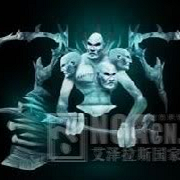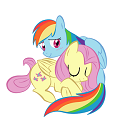|
I'm thinking of adopting the tribe management system from Orkworld into Ehdrigohr. Anyone have any experience adopting Wick's systems into Fate?
|
|
|
|

|
| # ? May 9, 2024 01:48 |
|
TheDemon posted:Suppressive Fighting could easily be justified to let you Defend regardless of who an NPC in the zone attacks. And guess what, the section of the blog you refer to, titled "NPCs and Characters can provide active opposition when this is supported by the fiction", tells you to do exactly that. At no point does the blog mention any kind of action advantage. Read the last quote I posted again. It mentions doing exactly that, with no special stunts. Provide Active Opposition, take action yourself with a skill if the target fails to make the roll.
|
|
|
Active opposition only means that the opposition gets to roll dice. It's not a hard and fast rule that active opposition gets to cause stress when the opposition wins. In the fire moat example, the opposition is passive, but the moat gets a burn things skill to attack whoever falls in. As far as I can tell, there's no mention of a character setting up a situation that lets them make additional attack actions, which is an enormous advantage and would probably be an example if the blog author intended that to be an option!Fate Core, p.92 posted:[On really powerful stunts costing fate points] Our best advice for determining what really powerful means is that it either goes beyond the specified limits we gave above (so, if it adds a new action to a skill and a bonus), or significantly affects conflicts. Specifically, almost any stunt that allows you to do extra stress in a conflict should cost a fate point to use. [emphasis mine] The book pretty much straight up says you shouldn't be able to cause more damage from your own skills without a stunt that is suitable in that situation, and such a stunt should probably cost a fate point when it is being used, as well. If I was your GM, I'd insist that you take a stunt to be able to counterattack like that with suppressive fighting (without a stunt, enemy failure would only result in them not being able to attack), and pay a fate point for every such counterattack that you do. Edit: included quote from FC Ruzihm fucked around with this message at 18:35 on Oct 25, 2013 |
|
|
|
|
Transient People posted:Read the last quote I posted again. It mentions doing exactly that, with no special stunts. Provide Active Opposition, take action yourself with a skill if the target fails to make the roll. Which is in a completely separate section about situation aspects that are modelled as characters, not about a situation aspect that enables a PC. "Active Opposition" specifically refers to rolling to oppose an enemy roll in FATE Core, the opposite being setting a difficulty for that roll ("Passive Opposition"). quote:Situation Aspects may provide Passive or Active Opposition To me as a GM that means if suppressive fighting acts in that way, then firstly it would be more difficult to place (or actively opposed with a teamwork bonus), and secondly its skill in opposing attacks and the difficulty to overcome it would be equivalent to your shifts. That also means you don't get boosts from its successes nor can you spend FP on its rolls. It depends of course on what the player is attempting to achieve, but it makes some sense to model the same according to this section of the very same article: quote:NPCs and Characters can provide active opposition when this is supported by the fiction That said the important part here is that both the player and GM are on the same page before the dice hit the table, so in this case the system works as intended either way with the aforementioned caveat.
|
|
|
|
Evil Hat's having a promotion for their new street team. Everyone who participates will get a PDF copy of the first volume for the new edition of Designers & Dragons and the ebook version of Dinocalypse Now. Each task you complete will also enter you in a raffle for some cool prizes, including a grand prize of winning all the digital versions of Evil Hat's products (or a $50 gift certificate plus a set of Fate dice if you'd rather have physical goods). Most of the tasks to enter the raffle seem easy enough:
|
|
|
|
Auralsaurus Flex posted:Evil Hat's having a promotion for their new street team. Everyone who participates will get a PDF copy of the first volume for the new edition of Designers & Dragons and the ebook version of Dinocalypse Now. Each task you complete will also enter you in a raffle for some cool prizes, including a grand prize of winning all the digital versions of Evil Hat's products (or a $50 gift certificate plus a set of Fate dice if you'd rather have physical goods). Hmmm, I wonder if the OP counts... Anyway, has anyone tried their hand at making a martial arts system? Something with a feat/charm tree type feel to it. I've been poking around at my old Feng Shui conversion notes but can't think of a way to handle power trees apart from "for every stunt this particular stunt requires, you get to pick one more stunt effect".
|
|
|
|
How about something like this: You have different martial arts "styles", and to slip into one of these styles is to tag yourself with an aspect like "Mantis Style" or what have you. While you're in a style, you can access the relevant stunts, allowing you to attack and tag advantages onto your opponents with ease. Certain styles would "defend well" against others, so you'd try and out-position your opponent. Sort of like a rock-paper-scissors deal. If you wanted to go further, you could have grades involved: Novice, Disciple, Master. Assuming "Mantis Style Novice" would unlock the tier 1 stunts, and so on. Learning or upgrading a style would require different levels of effort: novice you could do just by spending enough time studying opponents (exchange for a milestone, in other words), but for master you'd need to dedicate a significant character arc to the training. It's a little out there compared to the core material but, hey, that's what we're supposed to do with this stuff 
|
|
|
|
These rules arguments are actually pretty helpful to me. Fate seems like a fast and loose system where different groups can handle the same situation in whatever way makes sense to them. If your group is full of rule-exploiting "powergamers" or whatever, then you can make very strict requirements for combat actions. If it's all loosey-goosey "that sounds cool" types, then you don't have to worry. My group totally allows some crazy overpowered maneuvers on occasion, with the mutual understanding that trying to pull the same exploit over and over is boring and cheesy, so we don't worry about it. It's all playstyle, which I really like.
|
|
|
|
Evil Mastermind posted:Hmmm, I wonder if the OP counts... Got me thinking about this, and here's what I came up with. The biggest concern with a stunt trees is that when you start stacking bonuses, the math goes off the rails. A +2 advantage on an opposed roll means that you'll win--roll higher than them, not just tie--73% of the time. +4 is 93%. With any more elaborate combat system, you need to break it down to the base parts. Attack bonus. Extremely valuable in Fate, since increasing the one stat ups your chance to hit and increases the damage you do. Damage bonus. What most weapons do. Since they only work with a hit, they’re only half as valuable as attack bonuses, so a +1 attack is roughly equal to a +2 damage bonus. Defense bonus. What you roll to defend yourself. Also super important. Armor bonus. Reduces the shifts of a successful attack. It’s value depends on just how common weapons are. Stress and Consequences. The only one that isn’t part of a roll. Tricky. Initiative. A rather minor one compared to the others...but I have something planned. See below. There is also the issue of when you can use a skill to attack and when you can use a skill to defend. In the default system, you can’t use Fight to attack someone flying twenty feet overhead or to dodge arrows. If you’re going for something more over the top with your kung fu though, might as well make both things the standard. So...my idea would be to break Fight into four different skills. Swiftness How incredibly fast you are. When those with Superb swiftness or more battle each other, normal people can have a hard time just following them with their eyes. Swiftness replaces Athletics. Overcome: Run up walls, over water, through the tree tops, or over the heads of a tightly packed mob. Create Advantage: Things like “Too Fast to See”, “Always Behind You”, or simply “At the High Ground”. Swiftness advantages mostly focus on the one creating them. Power Power is simply how much power you can put into your attacks, and how strong you are. When those with Superb power deliver a particularly strong attack, whatever is hit will be destroyed. Power replaces Physique. Overcome:Destroy and break things. Walls, floors, weapons, even people. Create Advantage: Things like “Unstable Crater”, “Collapsing Ceiling”, or “Lion’s Jaw Grapple”. Power advantages are good for powerful aspects affecting the environment, but they can be a bit indiscriminate if you’re not careful. Chi Manipulation Chi is the life force of blah blah blah. It can be used to weird things like light punches that really hurt or fire energy blasts. Who knows what those with superb chi manipulation can do? Overcome: Sense a chi user, speed the recovery process--provide justification for healing, not actually clearing consequences--do weird things like shoot a bottlecap super fast. Create Advantage: Power up yourself, or chiblock someone else. Chi advantages are subtle, especially to those who aren’t practiced in the art, but powerful. Mastery Mastery is how skilled you are at using what you have. Those with Superb mastery can beat a horde of ninjas in a ladder factory while keeping a baby in their arms. Overcome: Like Fight, not used very often to Overcome. Create Advantage: Feint, Grapple, Trip, Bull Rush, Disarm, as well as more creative things that let you use skill over muscle to gain the upperhand. All of these fall under one uber skill called Kung Fu. When you take the Kung Fu skill, you then gain the four skills, with one at a rating equal to Kung Fu, another at your Kung Fu rating -1, and so on. For example, Goku has Kung Fu 7. He also has Power 7, Swiftness 6, Technique 5, and Chi Manipulation 4. Agent Coulson has Kung Fu 3, and Technique 3, Power 2, Swiftness 1, and Chi Manipulation 0. Next, allow players to allocate these four skills to their combat stats. Who is to say that Swiftness boosts defense rather than accuracy? That chi manipulation is armor rather than damage? Four skills, so the four combat stats will be Attack. Add it to your attack roll. Defense. Roll it when you’re defending. Armor. For each point, not only do you reduce the shifts of damage you take when hit, but you also gain one stress box. Expertise. Works as a damage bonus and initiative, and you roll it while Dancing. See below. Continuing the example, Goku now writes his sheet as +7: Kung Fu, Power (Attack) +6: Swiftness (Defense) +5 Technique (Expertise) +4: Chi Manipulation (Armor) With this, the order in which a player assigns their four skills becomes extremely important and lets players customize their style in a way that will be distinctive to them. Dancing In any good martial arts fight, the combatants aren’t just trading blows one at a time. It’s a constant flurry of motion that takes them all across the battlefield, a series of blocks and near misses. This is designed to try and capture that feel. When two kung fu experts engage in combat, they begin the Dance. At the start of each round, they roll their Expertise against a set DC, which starts at 1, and rises by 1 every round. Whoever rolls the highest has the initiative for that round, and acts first. If either player rolls lower than the DC, they take the difference in shifts of damage. If either player succeeds with style against either the other player or the set DC, they gain a boost. Succeeding with style against both only rewards the one boost. If the two players tie, they both reroll. Stunts When it comes to stunts, there is really one major design principle I’d be worried about. Stacking. To avoid this, I suggest Combat School stunts. Buying one Combat School stunt teaches you the ways of a certain martial art and gives you three Techniques. Like 4e attack powers, you have to declare which technique you are using and you can only use one at a time. Two examples. Crane Style You are three steps beyond graceful. When you defeat your enemies, they can become confused at your movements, thinking you yourself an untouchable illusion, or some sort of wizard. Leaf on the Wind: You move with perfect timing in step with your foe, letting them waste their energy attacking while you let yourself just barely avoid their mortal blows. Use this technique when you use Expertise to Create Advantage, and gain a +2 bonus on your next Dance roll. Unfamiliar Shadow: A single strike to disorient your foe, and then you’ve vanished. Or so they think, until they feel your hand on their back. No matter how they twist and turn, you stay one step ahead. If you use this technique with an attack and hit, you create a Behind You aspect with one free invoke. Merciful Counter: Your opponent’s attack leaves them full of openings. Using their own strength against them, you deliver a painful blow. When you succeed with style on a defense roll, you may use this Technique to forego the normal boost to instead inflict your shifts of success as damage. This counts as your next Action. Tiger Style You are the king of the jungle. Strong, powerful, and fierce, you terrify your enemies before the battle even starts. Once a battle starts, you are relentless and brutal, a monster with an artist’s precision. Tiger Claw: Your hands are lethal weapons. When you hit with this technique, inflict 2 extra stress. Tiger Maul: A blow to the throat disorients and disrupts your foe. When you hit with this technique, your opponent takes a -2 penalty to their next Dance roll. Tiger Pounce: You launch yourself at your opponent, too close for them to do anything but fight desperately for their life. When you hit with this attack technique, give them an aspect such as Grappled or CQC with one free invoke. That's about it for now.
|
|
|
|
quote:Damage bonus. What most weapons do. Since they only work with a hit, they’re only half as valuable as attack bonuses, so a +1 attack is roughly equal to a +2 damage bonus. This isn't actually correct because the usefulness of extra stress is nonlinear. One extra stress is worthless if you have to pay an equivalent price to +1 attack bonus, two extra stress is bad compared to +1 attack bonus, three extra stress against a +2 to attack rolls is again bad, and four extra stress against a +2 to attack rolls is broken because you bypass the stress track and directly jump to instantly inflicting consequences, generating action advantage, bonuses to actions and an incredibly fast death spiral. There's noe xact fix but generally, 'don't use flat stress bonuses tia' is the only sane way to handle stress I've found. No game mechanic should allow you to jump straight to consequences, ever, and flat stress has a remarkable tendency to do that.
|
|
|
|
quote:The biggest concern with a stunt trees is that when you start stacking bonuses, the math goes off the rails. The Fate protip is to not allow passive bonuses like this. And you've done an okay job directly recreating Fate Accelerated, I guess? Except making multi-person combat a nightmare with the Dance.
|
|
|
|
Transient People posted:This isn't actually correct because the usefulness of extra stress is nonlinear. One extra stress is worthless if you have to pay an equivalent price to +1 attack bonus, two extra stress is bad compared to +1 attack bonus, three extra stress against a +2 to attack rolls is again bad, and four extra stress against a +2 to attack rolls is broken because you bypass the stress track and directly jump to instantly inflicting consequences, generating action advantage, bonuses to actions and an incredibly fast death spiral. There's noe xact fix but generally, 'don't use flat stress bonuses tia' is the only sane way to handle stress I've found. No game mechanic should allow you to jump straight to consequences, ever, and flat stress has a remarkable tendency to do that. Yeah. The main thing is that when I run games, attacks can't succeed with style and consequences don't give a free invoke, which helps a lot with the death spiral. Still, a better mechanic would be good. RPZip posted:The Fate protip is to not allow passive bonuses like this. The rules are more designed for a crunchy Fate Core game with martial artists. Everyone has a Kung Fu skill rated at +4 or so, but they also have all their other stuff. For example, Jackie Chan's skill pyramid might look like: +4: Kung Fu, Mastery(Defense), Empathy +3: Swiftness (Expertise), Notice, Rapport +2: Power (Armor), Stealth, Contacts, Will +1: Chi Manipulation (Attack), Drive, Lore, Provoke, Burglary One other thing, is that in fights against less serious opponent's, rather than using the four micro-skills, Jackie can just use his full +4 Kung Fu bonus to kick their butts in a jiffy.
|
|
|
|
We do have a better mechanic, though - Weapon Dice (and Armor Dice I guess) are it. They seriously fix like two thirds of the issues with trying to crunch up FATE.
|
|
|
|
Transient People posted:We do have a better mechanic, though - Weapon Dice (and Armor Dice I guess) are it. They seriously fix like two thirds of the issues with trying to crunch up FATE. Never heard of them. Link?
|
|
|
|
Quadratic_Wizard posted:Never heard of them. Link? I assume he's talking about "Red and Blue dice" from the System Toolkit. Your weapon and armor ratings are reflected by red and blue dice, respectively, replacing dice in your normal dice pool. For each of these equipment-tied dice that comes up a + on relevant rolls, you get an additional change in shifts in your favor. Randomizes the typical effect of weapons and armor.
|
|
|
|
Plague of Hats posted:I assume he's talking about "Red and Blue dice" from the System Toolkit. Your weapon and armor ratings are reflected by red and blue dice, respectively, replacing dice in your normal dice pool. For each of these equipment-tied dice that comes up a + on relevant rolls, you get an additional change in shifts in your favor. Randomizes the typical effect of weapons and armor. Ah, right. I really don't think those are that good. Say you have 4 weapon dice. Since you're only counting the total pluses, calculating the probability becomes easier. +0 0000 0+-0 --++ average bonus: +1 +1 000+ 0-++ average bonus: 1.5 +2 0++0 -+++ average bonus: 2.5 +3 0+++ average bonus: 3 +4 ++++ average bonus: 4 Of course, you're 19 times more likely to roll a +0 than a +4, so when you weight the probabilities, the average bonus from 4 weapon dice is 1.68 compared to the 4 of regular weapon dice. Lower, when you factor in that plenty of times you'll roll a -1 or lower and still hit an enemy, do to low defenses or +2 bonuses from Invokes. Armor has it even worse. When you get hit, that's generally because you rolled poorly. When you roll a -1 or -2, you only have a 50% chance of getting a single plus on your roll, even if you have armor 4. You have zero chance if you roll a -3 or -4. Design like this is fine if you just want to make it something everyone has, and it can add a bit of fun to the table. But when you give someone a trap option like "You can have a +1 attack bonus OR 4 weapon dice" you're giving them a really bad option that looks good.
|
|
|
|
It kind of slows the game down to add one more step to attack resolution by rolling damage though.
|
|
|
|
Quadratic_Wizard posted:Ah, right. I really don't think those are that good. Say you have 4 weapon dice. Since you're only counting the total pluses, calculating the probability becomes easier. That is the point, yes. You don't try to compare things that are not comparable, and hitchance+damage versus pure damage is incomparable because there is no situation where one is not obviously better than the other. Instead you make damage an extra. You're also forgetting the ripple effect of weapon dice, which makes the reroll option of invokes better compared to taking the flat +2, something which is useful as well. Killing two birds with one stroke is a wise move. quote:It kind of slows the game down to add one more step to attack resolution by rolling damage though. You don't, though. Your attack roll is your damage roll as well, it's just that you're fishing for plusses instead of flat numbers.
|
|
|
|
Is making 4 - (minuses) a critical failure a bad idea? I want a flipside of 'succeeding with style' aka critical hits, but I'm not sure what the statistics of rolling 4 - is.
|
|
|
|
Qwo posted:Is making 4 - (minuses) a critical failure a bad idea? I want a flipside of 'succeeding with style' aka critical hits, but I'm not sure what the statistics of rolling 4 - is. Ask yourself three questions when dealing with failure mechanics: A) Are players going to enjoy it? All players, from the goofballs to the guys who play for keeps to get the story they envision for their characters to happen? If not, how many groups are you going to alienate? B) Are they going to take it when it happens, when rolling a quadruple minus already has the problem of potentially causing you to get one-shotted, giving your enemy a success with style, when they could just invoke to reroll and ignore the pain? C) Is the mechanic not covered by the system already? Do you really need critical botches when successes with style are already a thing, especially when the botches can happen on reactive rolls like defenses? If the answers to these questions are no, no and yes, then scrap the mechanic. Otherwise maybe it's good to develop. Remember though, failure isn't as entertaining as success because most players want their characters to be competent individuals, not useless wastes of space, and the guys who want to be the latter are either disruptive assholes or will constantly be taking compels to fail rolls without trying anyways.
|
|
|
|
Transient People posted:That is the point, yes. You don't try to compare things that are not comparable, and hitchance+damage versus pure damage is incomparable because there is no situation where one is not obviously better than the other. Instead you make damage an extra. You're also forgetting the ripple effect of weapon dice, which makes the reroll option of invokes better compared to taking the flat +2, something which is useful as well. Killing two birds with one stroke is a wise move. As for the value of rerolls vs flat +2s, with the normal rules you're really only better off rerolling when you have a -2 or lower. So assuming that this boosts the value of a reroll, you would need to have it so that when you roll a -1, rerolling is a better option than taking a +1. Being able to take a flat +1 rather than a roll that averages out to 0 and might have some bonuses is objectively worse, and it only gets worse the better your roll is.
|
|
|
|
Quadratic_Wizard posted:Right, my point was only that it doesn't really do much. One weapon or armor die is such a tiny, tiny improvement that you don't really have any options to customize it. I mean, you could say that players get 4 dice to spend on weapons or armor, but that's about it. And I'm not convinced that you can't compare a damage bonus to a hitchance+damage bonus. -3, actually. Right now you only want to reroll if you got a -3 or worse, which is part of why you want rerolling to be better - if it was a legitimate choice instead of an unfavorable gamble to take a reroll on a -2 then you'd more or less have parity between FP uses.
|
|
|
|
So, I've been thinking about using the fate fractal and applying it to dungeon crawling. Each dungeon--or floor of the dungeon for especially large ones--gets statted up as a character. Kind of. Aspects tell you what the dungeon is, what it looks like, who lives there, etc. Rather than skills and stunts, the dungeon just has an Exploration stress track. Each time the PCs explore a new part of the dungeon, they roll the dice. On a 1 or higher, the make progress and find some loot. Each stress box they check off is worth ten times its level in gold. So checking off the 3rd box means you found 30 gold coins worth of treasure. What is gold good for? Not much, really. More fun are what happens when you inflict consequences, because those are the magic items. Healing Potions, magic swords, all that good stuff. Once the dungeon has been Taken Out, the PCs have found everything worth looting. Of course, not every roll is going to be puppies and sunshine. When the PCs roll a 0, a random event triggers. That I'll need a table for, or just make something up on the spot. On a -1 or lower, monsters are encountered, and they get a number of Fate points equal tot he absolute value of the roll. So a -4 is going to be more painful than a -1. A couple more changes. Stress doesn't heal in the dungeon unless you retreat, which makes the stress you've inflicted on the dungeon heal too. Each time you inflict stress on the dungeon, you take a cumulative -1 penalty that resets after a monster encounter. As well, when you defeat some monsters, you get a bonus roll to see if those monsters had any good loot, with the bonus equal to the total number of combat encounters you've completed in the dungeon. That's the rough idea of it, needs some polish, but what do you guys think?
|
|
|
|
Quadratic_Wizard posted:So, I've been thinking about using the fate fractal and applying it to dungeon crawling. At this level of abstraction, this sounds more like a board game, or a minigame system within an rpg, than an rpg of its own. Like, social interaction is what the campaign focuses on and the dungeon delves are handled by this minigame. Or you could flesh it out and make it a fully fledged board game-style thing with cards and counters and stuff, maybe? It seems kinda in-between to me and I'm not sure that the Fate combat system is robust enough to basically just play it for a couple hours, at least not for me. It's a neat exercise in the Fate fractal for sure. Edit: if you went the "this is a board game without a board" route, then you could make Gold be some kind of competitive points thing. Or else a resource to buy more cards/abilities/whatever Extras there are) Scrape fucked around with this message at 17:52 on Nov 1, 2013 |
|
|
|
Rather than the board game direction, I think this has potential as a way to do a normal dungeon with a determined ending without having to map it out. Venturing into unknown parts of the dungeon is an Attack against the Dungeon that inflicts exploration stress on a hit and leads the party to traps/monsters on a miss. When the Dungeon picks up consequences, the party has figured out patterns to its layout to allow them to explore it with greater efficiency. When the Dungeon is Taken Out, you found the exit.
|
|
|
|
Board Game and Normal Dungeon are both what I'm going for. Dungeon crawling to me is the ultimate "beer and pretzels" experience, and I was thinking of how to capture that super old school feeling with Fate. The biggest inspiration for the idea was Stonesoup Dungeoncrawl, the idea being that tweak the rules to make characters fast, level up fast, get lots of loot fast, and die fast. Could work in a more serious game, but right now the basic idea is something a bit more casual.
|
|
|
|
I'm involved in a pretty kick rear end dungeon crawl using Fate Core currently. To show that our characters are far less than proficient we dropped they pyramid one step. So instead of going +4 +3 +2 +1, we have +3 +2 +1 0. Any skill not on the pyramid is then rated at -1 and you can't take any stunts pertaining to it. On top of that we each have aspects showing how new we are to our chosen professions as well as having pseudo team aspects. For dungeons we just have a standard dungeon. Each room is roughly one zone and we go about our dungeon diving just like you would in any other game. Traps are sprung or not sprung based on what we say we're doing, if it would be funnier if there was a trap there, that sort of thing. We spent the last two sessions dealing with one small dungeon and had a wonderful time of it. Edit: A couple of links that inspired how we're doing things. http://chaosgrenade.com/2013/09/17/plotting-a-fate-hexcrawl-campaign/ https://plus.google.com/117644069449598139980/posts/eucfGEzaevZ
|
|
|
|
Quadratic_Wizard posted:Board Game and Normal Dungeon are both what I'm going for. Dungeon crawling to me is the ultimate "beer and pretzels" experience, and I was thinking of how to capture that super old school feeling with Fate. The biggest inspiration for the idea was Stonesoup Dungeoncrawl, the idea being that tweak the rules to make characters fast, level up fast, get lots of loot fast, and die fast. That makes sense, then. I was kinda thinking that you were after a normal campaign experience, but with this ultra-abstracted dungeoncrawl mechanic. Loot should be a big factor in the game, though, and Fate doesn't seem to do equipment bonuses much. What if loot, like, duplicated Stunts? Like you find the Sword of Sweet Bonuses and it gives you a combat Stunt, or the Lantern of Discovery gives you an exploration-based Stunt. It would sort of emulate that "leveling up feeling" if the PCs started as crummy no-stunt nobodies and started getting more badass as they gained items and therefore access to these abilities.
|
|
|
|
I remember back in D&D 1e there was stuff like... one guy would calculate the full volume of a Fireball spell, figure out that it would probably clear a dungeon if he could cast it without being in the affected volume, and "win" the dungeon that way. Even in D&D 3.x, one could use items like an Endless Decanter or spells like Rock to Mud to flood a dungeon, or Pyrotechnics to "smoke out" a large volume of enemies. Maybe this abstract dungeon mechanic would be good for stuff like that?
|
|
|
|
My wife thedandmom began a new campaign tonight, using FAE for the first time for myself or her. Just me and Ryven Cedrylle playing for now, but we're having a blast. Setting is called The Merge, a hodgepodge universe pulled together from fragments of other universes. We figured at first that since the immediate results were myself playing a Jedi turned Smuggler and Ryven playing an anime cyborg arms merchant things would be pretty silly. All in all it's pretty straight-laced so far. First session was pretty conflict light, mostly a chance to get used to new characters, new system, and new setting. Today we came across a new merger in progress as a planetary system popped into this reality directly in front of our flight path, and a combination of ace piloting and crack navigation kept us from wrecking the ship. Wrecking it completely anyways. The ion coupling needed replacing. Upon exploration we found the World was post-post-apocalyptic, civilization beginning to rebuild amidst the ruins of a previous World. Found a teenage mechanic to aid in installing the new equipment, found replacement equipment, got food poisoning, and gambled in a gladiator arena called The Derby (which was apparently housed in the remains of Churchill Downs), used the Force to outright cheat at said gambling, hired aforementioned teenage mechanic onto the team so the ship would actually have more than one person who knew how to use a wrench, left the planet with hopefully enough time to not irritate the Hutt we're delivering to. Considering trading her my turn in the DM seat next week.
|
|
|
|
How much should I worry about aspect bloat? I'm planning a game which is basically fantasy prohibition era Chicago. Now in an effort to make different parts of the city distinct, I was going to give each district it's own issue aspects, as well as the ones for the city. Plus aspects for the scene. We're all a bunch of Fate newbie, I'm I setting myself up for confusion and is there anything I can do to help mitigate this?
|
|
|
|
Avoid "chasing" aspects. Don't over-describe and don't feel like you have to get all the relevant aspects nailed down before hand. If it's important and already there it'll come up and that's when you can give it a witty phrase and bold font. Remember that a single aspect can reflect a whole lot of things. You don't need rusty fire escape, rotten floorboards and so many broken windows when dilapidated warehouse will do.
|
|
|
|
The other thing is that until you say no, an aspect like rotten floorboards is true. Since aspects require either create advantage actions or fate points to take advantage of, it doesn't really matter how overboard you go with them in terms of the math, so you don't have to worry on that end.
|
|
|
|
So I ran my first Fate session last night, the worldbuilding one. It was amazing. They started with "fantastical fantasy" and from there decided on a world of land fragments floating in a ring, Saturn-like, around the sullen core of The Planet Before. Each fragment has its own inherent magic, its own biome, ecosystem, and dangers. Instead of swords-and-sorcery, the tech and civilization is centered around hacked together magitek based on local magical law. Then one of my players had his character blow up something called the Dorbis Lock with a mad-engineering shovel bazooka and all of a sudden every other bit of the character's backstories hooked onto that, weaving a tale of accident, intrigue, invading monsters, and subsequent heroics. My only real issue is that their Trouble aspects seem a little weak and redundant. For example: One has "I Always Think Someone Is Watching Me" as a paranoia-type Trouble. But, since it's an Aspect the 'always' bit is sort of redunant. Plus, a later aspect from the Phase Trio, "I Have Assassins For Friends And Enemies" seems a bit better as a trouble. Again, one has "He's Always Up To Something" for a shenanigans-type Trouble, but a later aspect "I Leap Before I Look" seems to be a better source of it. The last has "Here One Day, Gone The Next" to reflect that using their special ability will eventually just cause them to drop dead with no warning. I think I should have them retool that into something like "I'm careful about what I do" or "gently caress it, nobody lives forever," especially since they don't have a great deal in other Aspects to cause Trouble. How integral are strong, flexible Troubles? Should I tighten up some of these Aspects or does Trouble take a backseat to regular narrative complications?
|
|
|
|
Daetrin posted:My only real issue is that their Trouble aspects seem a little weak and redundant. Most of these actually seem like pretty good Troubles! But I'll offer some suggestions. For example: One has "I Always Think Someone Is Watching Me" as a paranoia-type Trouble. But, since it's an Aspect the 'always' bit is sort of redunant.[/quote] So, the think that seems to limit this one to me isn't the "always," it's the "think." Paranoia doesn't generally make for fun characters unless, y'know, there really is someone out to get them. If I were going to suggest a tweak to this Aspect, I'd go with something like "There's Always Somebody Watching" or, even better, something specific like "Hunted by the Black Division" or something ominous and world-buildy. quote:Plus, a later aspect from the Phase Trio, "I Have Assassins For Friends And Enemies" seems a bit better as a trouble. It's only better as a Trouble if the player specifically wants the character's friendship (and foedom) with Assassins to be the chief complicating subplot in the story. Remember, all good Aspects should have both positive and negative implications--that's how you get Fate Points! What makes Trouble special is the way it says to the GM "this is the main complication in my character's life, use it to generate stories often." quote:Again, one has "He's Always Up To Something" for a shenanigans-type Trouble, but a later aspect "I Leap Before I Look" seems to be a better source of it. Again, it sounds like the player wants his character's Trouble to be "I'm spinning lots of plates and trying not to be overwhelmed," while you want it to be "I rush in without thinking." Those are two very different characters, and "He's Always Up To Something" is a great Trouble Aspect. Hell, just off the top of my head I can think of a bunch of good Compels for it: - [Key NPC] was the victim of one of your scams in the past. - A vital part of your plan is close to exposure! Better get on that. - If [Party Ally X] succeeds in their current goal, one of your schemes will be unraveled. Better find a way to compromise without seeming like you're compromising! - Hey, y'know, if you don't tell the Duke about that tablet you translated in the Crypt of Dazorgan, you could probably.... Etc. quote:The last has "Here One Day, Gone The Next" to reflect that using their special ability will eventually just cause them to drop dead with no warning. I think I should have them retool that into something like "I'm careful about what I do" or "gently caress it, nobody lives forever," especially since they don't have a great deal in other Aspects to cause Trouble. This last one is a little trickier, and could probably be tightened up a bit based on what that means to the character, but even still you could compel it in a lot of fun ways: the villain offers you a cure for your curse, or the Macguffin you need to collect could accelerate/trigger the curse prematurely, stuff like that. Overall, I think you've got some strong Troubles. Think of a Fate campaign like a serialized TV show. Your main story is the "A" plot, but your characters' Troubles are a great source of the "B" plots that run through various episodes and give the characters life and depth.
|
|
|
|
Hokay, that really does help a lot! I just needed a different bit of context to see those Aspects properly it seems. This will require far less poking and prodding than I was worried it might. (Now I get to actually figure out how to kick off their plot.)
|
|
|
|
Remember that nothing's set in stone. Aspects can be changed, and it's a lot easier to come up with good ones once you've got a feel for how they play - so there's not nearly so much pressure to get it perfect in case you cripple a character from the start. For the paranoia one, another approach could be to look at what they do about that belief - are they always heavily armed, or maybe they never take a direct route (prefering to cut through back alleys).
|
|
|
|
I wrote some new rules for Base Raiders covering origin story adventures - i.e. adventures where the PCs gain their superpowers for the first time. It references rules from the main book, but I thought it could be useful for anyone who wants to run a superhero origin story game http://www.baseraiders.com/2013/11/03/new-rules-origin-stories/
|
|
|
|
Speaking of superpowered people, I'm thinking of running an FAE supers game, and this is the current approach I have come up with for powers. One major conceit for the game is that powers tend to be, well, powerful. Control tends to be a problem more often than power levels.quote:Detail your superpower or power package. Choose 1, 2, or 3 approaches. When you use your power along one of these approaches, roll with a bonus of +3, +2, or +1 to your result, respectively.. If you tie, there will be unintended collateral effects. If you fail, you are faced with a choice of either causing unintended catastrophe of some kind or taking a stress hit to the tune of the number of shifts you lost the roll by. This costs 2 refresh, and cannot be taken more than once. Any thoughts?
|
|
|
|

|
| # ? May 9, 2024 01:48 |
|
Sounds interesting at a glance. Consider using Collateral Consequences from the Fate Toolkit, so the players can offload the stress from their failure rolls into the world itself and turn them into tangible complications. 
|
|
|





























